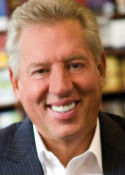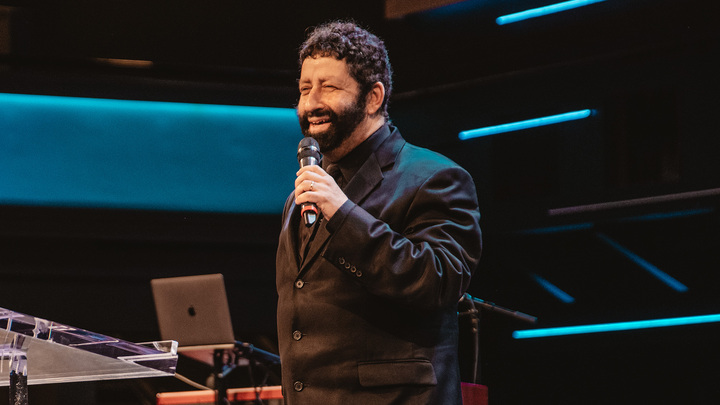Have you ever tried to explain something to someone, only to be met with a blank stare? Maybe you were trying to tell a client why his one-of-a-kind inventory tracking program wasn’t working. Maybe you were seeking to inform your team about subtle changes to your company’s health insurance plan. Maybe you were attempting to help your teenager with a calculus problem.
Whatever you were trying to do, it just wasn’t working. Somehow, the message you were trying to convey wasn’t getting through to your audience. In fact, you may as well have been talking to a rock.
The ability to make the complex seem simple is a mark of a good communicator. Some people do this naturally—they have an innate capacity to explain complex concepts in ways that evoke understanding instead of vacant looks. As I often say, they know how to put the cookies on the lower shelf so everybody can have some.
For other people, speaking with such clarity is more of a challenge. When you’re a leader, however, it doesn’t matter whether explaining tough ideas is easy or difficult for you. You have to be able to be able to put the cookies on the lower shelf—and do it consistently—if you want to be successful.
Here are four questions that will help you communicate complicated issues more effectively.
- Do I understand it?
It may be that you lack enough expertise or knowledge about a particular topic to be able to explain it someone else. That’s nothing to be ashamed of—nobody can be an expert on everything. The key is to recognize that your lack of understanding is impeding your ability to communicate, and then figure out what to do about it.It might be as simple as doing a little research to increase your comprehension of the subject. Or maybe you need to find someone else who can explain it. Whatever you do, don’t try to communicate something you don’t understand yourself.
- How can I help others understand it?
Maybe a colorful chart or handout would help make a complex idea seem simple. Perhaps a personal illustration, a sports analogy, a simple timeline or a few carefully chosen words on a whiteboard would do the trick. Or maybe you just need to think of how you would explain it to a seven-year-old, and then adapt that explanation for an adult audience. - Do they understand it?
If your words elicit smiles, nods or applause, it might be tempting to assume that your listeners understood what you said and are now prepared to act accordingly. Don’t make such assumptions. The only way to know for sure if what you said made sense is to ask them open-ended questions that will reveal whether they really understood. - Did they understand it well enough to help someone else understand it?
When it comes to putting the cookies on the lower shelf, this is the acid test. For example, you might understand your company’s new strategic plan perfectly. You might have all the tools and illustrations you need to help a new employee understand it. You might even break it down in such a way that enables him or her to comprehend it quite well.But in order to meet what I call the “pass-it-on” requirement, you have to explain the strategic plan so clearly that the new employee can turn right around and explain it to a third person.
If you want your words to elicit fewer blank stares and more nods of understanding, make it a point to ask yourself these four questions whenever you are trying to explain a complicated concept.
It’s the only way I know of to ensure that you are putting the cookies on the lower shelf so everybody can have some.
free monthly e-newsletter: Leadership Wired
available at www.INJOY.com.
John Maxwell grew up in the 1950s in the small Midwestern city of Circleville, Ohio. John's earliest childhood memory is of knowing that he would someday be a pastor. He professed faith in Christ at the age of three, and reaffirmed that commitment when he was 13. At age 17, John began preparing for the ministry. He attended Circleville Bible College, earning his bachelor's degree in 1969. In June of that same year, he married his sweetheart, Margaret, and moved to tiny Hillham, Indiana, where he began his first pastorate.
While serving in his second church, Maxwell began to study the correlation between leadership effectiveness and ministry effectiveness. On July 4, 1976, while preaching at a service commemorating America's bicentennial, John sensed that God was calling him into a ministry to pastors. Within days after that event, pastors began to contact him, asking for his assistance in nurturing their churches. Over the next four years, on an informal basis, John helped scores of fellow pastors. Then, in 1980, he was asked to become Executive Director of Evangelism for the Wesleyan denomination.
Though his time at Wesleyan headquarters was productive, John soon realized that his deeper desire was to help pastors from numerous denominations. He knew that desire would be unfulfilled if he were to stay at denominational headquarters. As a result, in 1981 John accepted the call to return to the pastorate, this time at Skyline Wesleyan Church in the San Diego, California area. But he did so with the church's blessing to pursue his vision. The Skyline congregation allowed him to continue mentoring and assisting pastors even as he led them to new levels.
In 1985, as he continued to equip and encourage other pastors, John took the next crucial step in leadership development. He founded a new company called INJOY and created the INJOY Life Club, featuring a monthly tape for leaders. The fledging operation, established in the corner of a garage, was soon bursting at the seams. The INJOY Life Club tapes were received with great enthusiasm, and the number of subscriptions quickly increased from hundreds to thousands. Simultaneously, the demand for other resources and seminars exploded. Pastors from coast to coast were responding, and their desire for help was even greater than John had anticipated.
As the years passed, INJOY began demanding more and more of John's time. In 1995, he resigned from his position as senior pastor at Skyline following a very fruitful 14-year tenure. The church had tripled in size and its lay ministry involvement had increased ten-fold. Dr. Maxwell is in great demand today as a speaker. Through his bestselling books, audio and video resources, and major conferences, he communicates directly with more than one million people every year. He is frequently asked to speak for organizations such as Promise Keepers and Focus on the Family, but his greatest joy and desire is to help pastors become better leaders.
Because the need for leadership development knows no borders, John established EQUIP, a non-profit organization which trains leaders in urban communities, academic institutions, and within international organizations. EQUIP is also spearheading a movement which has enlisted more than one million pastoral prayer partners who covenant to pray specifically for those who shepherd God's flock.
John continues to seek new opportunities to help churches and church leaders. He knows that one thing is constant: the only hope for the world is salvation through the Lord Jesus Christ, who gives life abundantly.







